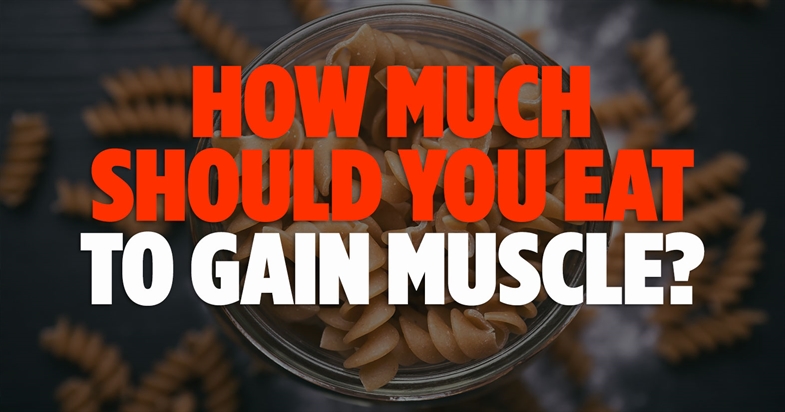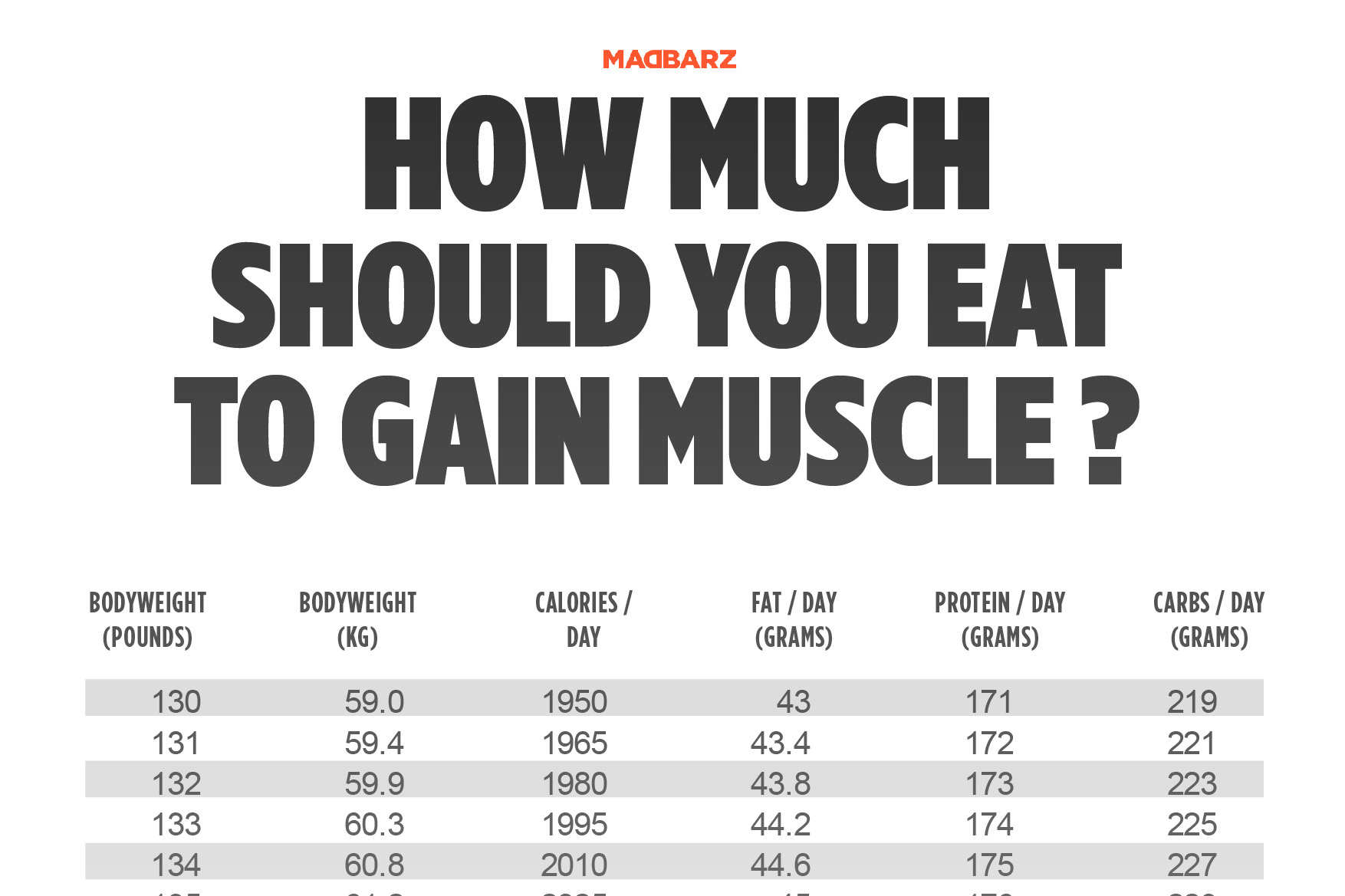How Much Should You Eat To Gain Muscle
Want to build muscle with bodyweight workouts? Then you need this info!

Gaining muscle is hard work, but more muscle mass makes it easier to stay fit and lean all year round.
Adjust your food intake for muscle gain
Everyone is different, but some general advice would be to consume about 15 calories per pound of your bodyweight if you want to add muscle mass.
For a full table with calories and grams for your bodyweight scroll down and click on the image below.
For a 150 lb (~70 kg) that would be 2250 calories per day. But wait! This is only for rest days.
Eat more on training days
Click on the table below to see your required amount of daily calories for rest days.
On training days you need to add the calories burned with your workout. For example, an intense 30-45 min bodyweight strength workout would burn around 300-400 calories, depending on your body composition and fitness level. However, if you have trouble gaining weight in general, feel free to add 500 kcal on training days, regardless of the intensity and duration of the workout.
What to eat
Let's say you have to eat 3000 kcal on your training days. Does it mean you can just eat whatever you feel like in this amount? No.
- Balanced macronutrients - consider the suggested amount of protein, fat, and carbs to fit in this daily food intake. if you want to make your body build more muscle. For suggestions scroll down and click the table below.
- The quality of the food - High-quality protein, complex carbs, and healthy fats boost your recovery and thereby help you train more and gain more. Learn more about the role of protein in muscle building.
What's the easiest way to gain muscle and eat good stuff without counting calories?
A good nutrition guide can support your training and muscle building without the need to count calories or calculate every gram of food you eat. Madbarz Nutrition Guide has a selection of recipes tailored to your goal - Lose Fat or Build Muscle. Get enough macronutrients in every meal from quality sources just by using the simple guidelines and easy recipes. Nutrition Guide is available in the Madbarz Premium, along with home workout plans!
Click on the image to open the full table in the new window.
Important: The information in the table below is a general suggestion of calories for rest days. Adjust the amounts based on you training volume. Keep in mind that everyone is different, some people gain weight easily but they put on a lot of fat, others can't gain anything at all. People who easily gain weight should keep their carbs to the suggested amounts and add more fat and protein. People who have trouble gaining weight can easily add more carbs to their daily intake. That's why this table offers a starting point that you should change to fit your needs.





Post a comment